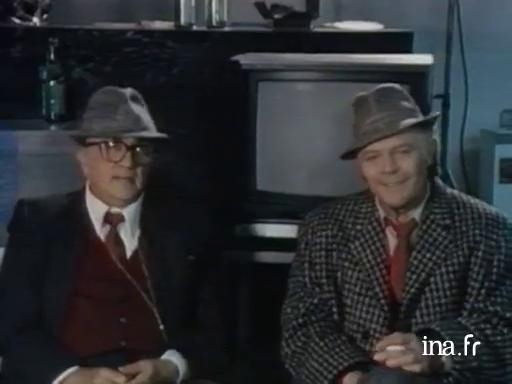Fellini and Mastroianni, regarding the shooting of Ginger and Fred

Information
Fellini and Mastroianni shoot Ginger and Fred. Federico Fellini speaks about cinema-television relations; he believes that television has changed the relationship between the public and the screen; he delivers an analysis of the impatient and scattered "new spectator".
Context
An integral part of Federico Fellini's (1920-1993) work, the never denied fascination of the Italian master for show business and for illusions make him gradually stray away from the neorealism that was always present in his first masterpieces, such as I Vitelloni (1953), La Strada (1954) and Il Bidone (1955). From La Dolce Vita (1960) on, where the filmmaker, more provocative than ever, found within Marcello Mastroianni his double in front of the camera, his art illustrates his fantasies and his frustrations as a creator.
Abundant, dreamlike and autobiographical, deliberately ignoring the traditional spirit of narration, his films, like 8 1/2 (1963), Amarcord (1973) and City of Women (1980), hide an unbearable fear of death behind the caricature of the outline and the nostalgia in certain scenes. This seriousness - present in works as diverse as Satyricon (1969), Roma (1972) and Casanova (1976) - is an integral part of Ginger and Fred (1985) where Fellini renews with his favourite stars, Mastroianni and Giulietta Masina, to better denounce the inescapable hold of television.




